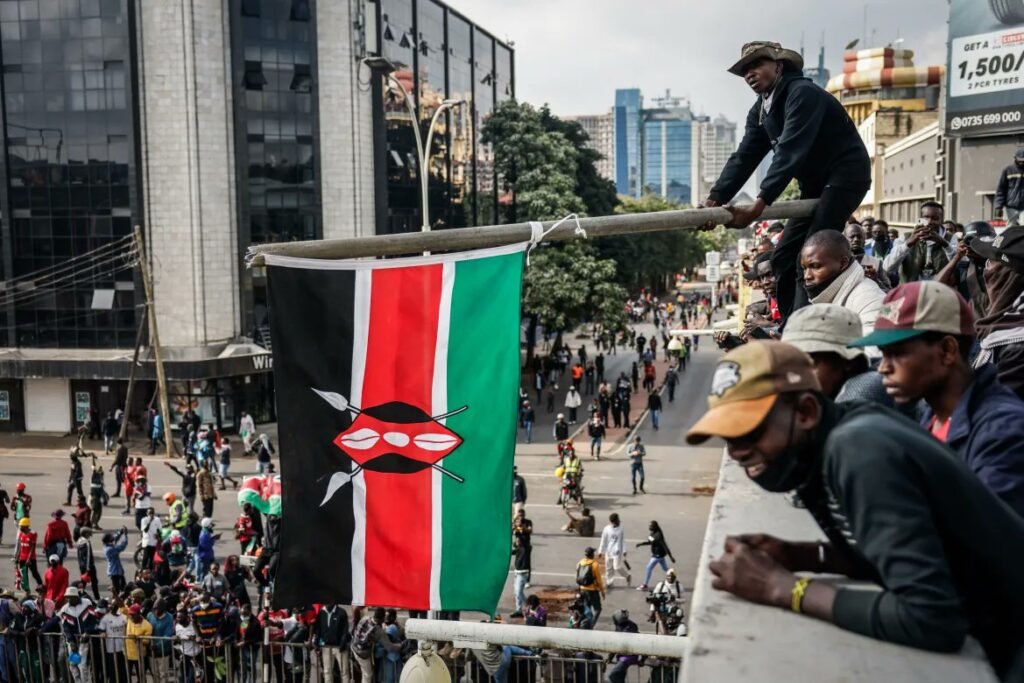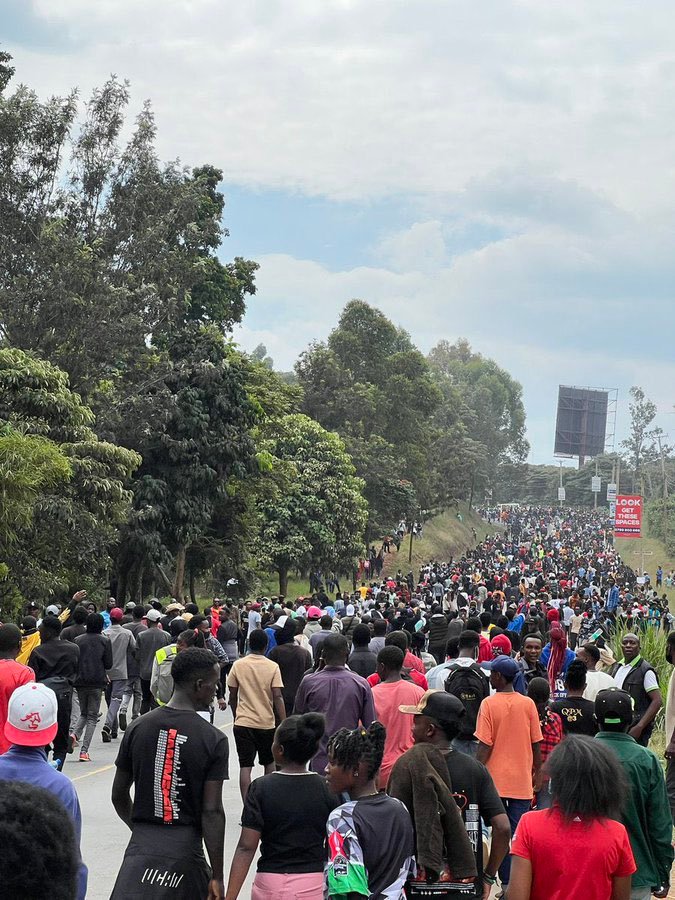At least 16 people died in violent protests across Kenya on Wednesday as anger boiled over against President William Ruto’s government. Amnesty International confirmed the death toll, with many more injured and businesses left in ruins.
Protesters marched to mark one year since deadly anti-tax demonstrations that killed over 60 people in 2024. Although this year’s march began peacefully, chaos soon followed.
Downtown Nairobi, the center of the protests, woke up to destruction. Looters raided shops and set buildings ablaze. Windows were smashed. Electronics, perfumes, and clothes were looted or burned.
Business owners said the looting started after the government ordered a blackout on live TV coverage of the unrest.

One business owner said, “We watched everything we worked for disappear in flames and theft. Nobody helped us.”
Young men fought with police and tore flagstones to hurl at security forces. Fires burned in the streets. Many protesters suffered gunshot wounds, especially outside the capital, where local media reported that police fired into crowds.
Hundreds Injured as Protesters Defy Police Crackdown
A coalition of rights groups said over 400 people were injured, with 83 in critical condition. Protests erupted in 23 counties across Kenya.
Irungu Houghton, Amnesty International’s Kenya director, confirmed the rising death toll. “We now know that at least 16 people have died,” he said.
The protests followed growing public dissatisfaction with the government’s economic policies, police brutality, and tax hikes. The recent death of a teacher in police custody deepened the public’s anger.
President William Ruto signed the Finance Bill 2025 into law on June 26, triggering more unrest. Many citizens are angry that the bill passed despite their objections.

The Finance Act 2025 makes changes to several tax laws, focusing on reforming systems instead of adding new taxes.
It requires employers to automatically apply tax reliefs and deductions for workers. It also raises the daily tax-exempt allowance from KSh 2,000 to KSh 10,000.
The law exempts pension and gratuity payments from tax and cuts Capital Gains Tax on high-value investments from 15% to 5%.
Startups will benefit from a 15% corporate tax rate for their first three years. Large investors who commit over KSh 3 billion will enjoy the same rate for ten years.
Digital Assets and Public Funds Under New Provisions
The Finance Act also replaces the Digital Assets Tax with a 5% excise duty on virtual asset transaction fees.
Parliament approved the government’s authority to access KSh 1.88 trillion from the Consolidated Fund for the 2025/2026 budget.


It also authorized KSh 671.99 billion from internal revenues of ministries and agencies.
Public outrage forced Parliament to remove a clause that would have given the Kenya Revenue Authority unrestricted access to personal data.
Despite the new bill’s attempt to shift toward administrative changes, many Kenyans remain frustrated with the government.
President Ruto’s promises of rapid economic growth and reforms have not eased the daily struggles of millions.
As Kenya recovers from the violence, the government faces pressure to rebuild public trust and prevent future unrest.
Rate, Like 👍, Comment, share this article, Follow us on our social media handles, and Submit your own story to get featured and earn rewards!








